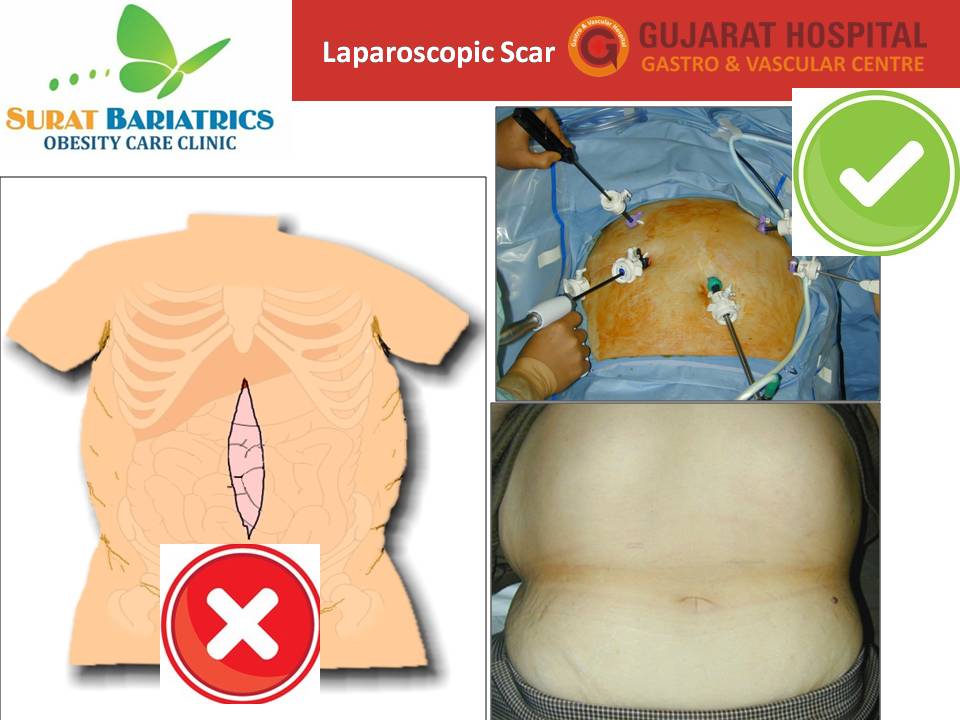Who are the Candidates For Lap Sleeve Gastrectomy:
If your weight and BMI qualifies to undergo bariatric surgery then you can be selected for Lap sleeve gastrectomy. It is usually selected for those who are young, physically active, can do exercise, not having significant GERD (Gastro-Esophageal Reflux Disease) and not having uncontrolled Diabetes.
Laparoscopic sleeve gastrectomy is also performed as first stage of a 2-stage operation in extremely obese patients with a BMI of 60 or more. This is done to achieve a considerable amount of weight loss so it is safer for the patient to undergo a second bariatric surgery if needed. but it is seen that most of these patients do not require a second operation as sleeve gastrectomy alone gives them good results in terms of weight loss and quality of life.
Surgery:
The procedure is performed under general anaesthesia. Your Bariatric surgeon makes 4 to 5 small incisions on your abdomen (5 mm to 12 mm size). This is called as Key hole method of surgery. Your surgeon will free your stomach from Fatty tissue(omentum) attachments and then with the help of staplers he will make ur stomach smaller (banana shaped). At the end of the procedure, the incisions are closed with skin clips.
Advantages:
- Normal functions of the stomach are retained.
- Simplest type of bariatric surgeries, Less operative time
- Performed laparoscopically so faster recovery, shorter hospitalization stay, early return to routine life.
- Minimal post-operative pain and discomfort.
- less calorie consumption after surgery.
Disadvantages:
- Irreversible procedure
- Need for second surgery in highly obese patients
- weight regain problem in 15-20% cases.
Post-operative care:
- Your doctor will prescribe pain relieving medications to keep you comfortable following the procedure.
- You will be advised to take medication to reduce the amount of acid produced by your stomach.
- Avoid strenuous exercises and lifting heavy weights till 3 weeks of operation.
- For the first month after the procedure, eat only small amounts of soft foods
- Sip water throughout the day to prevent dehydration.
- Eat a highly nutritious diet rich in proteins with a low fat and low carbohydrate content.
- Your dietician will tailor a new diet regimen for you to follow.
Risks and Complications:
- As with any surgery there are potential risks and complications involved. The risks include blood loss, infections, problems associated with anaesthesia, and deep vein thrombosis (blood clot in the leg).
- The major complications following sleeve gastrectomy surgery is very rarly leakage from staple line which requires immediate intervention in the form of reoperation/ stent placement.


